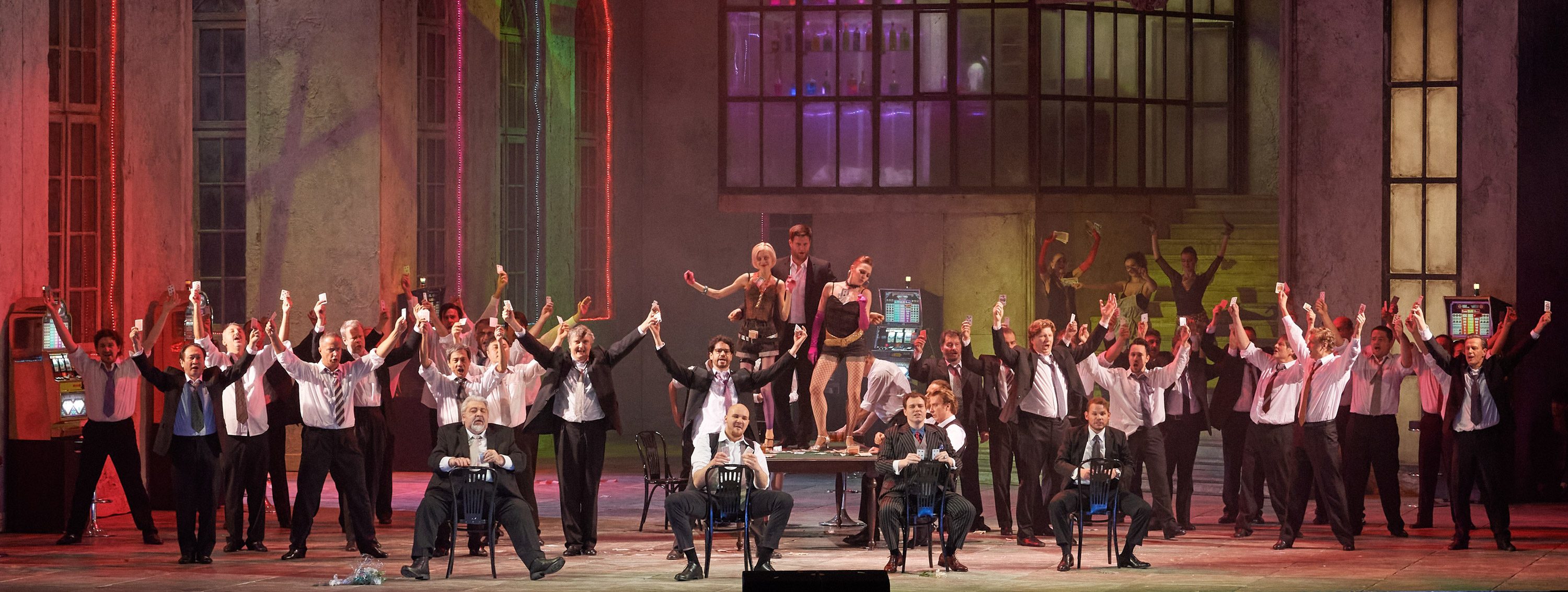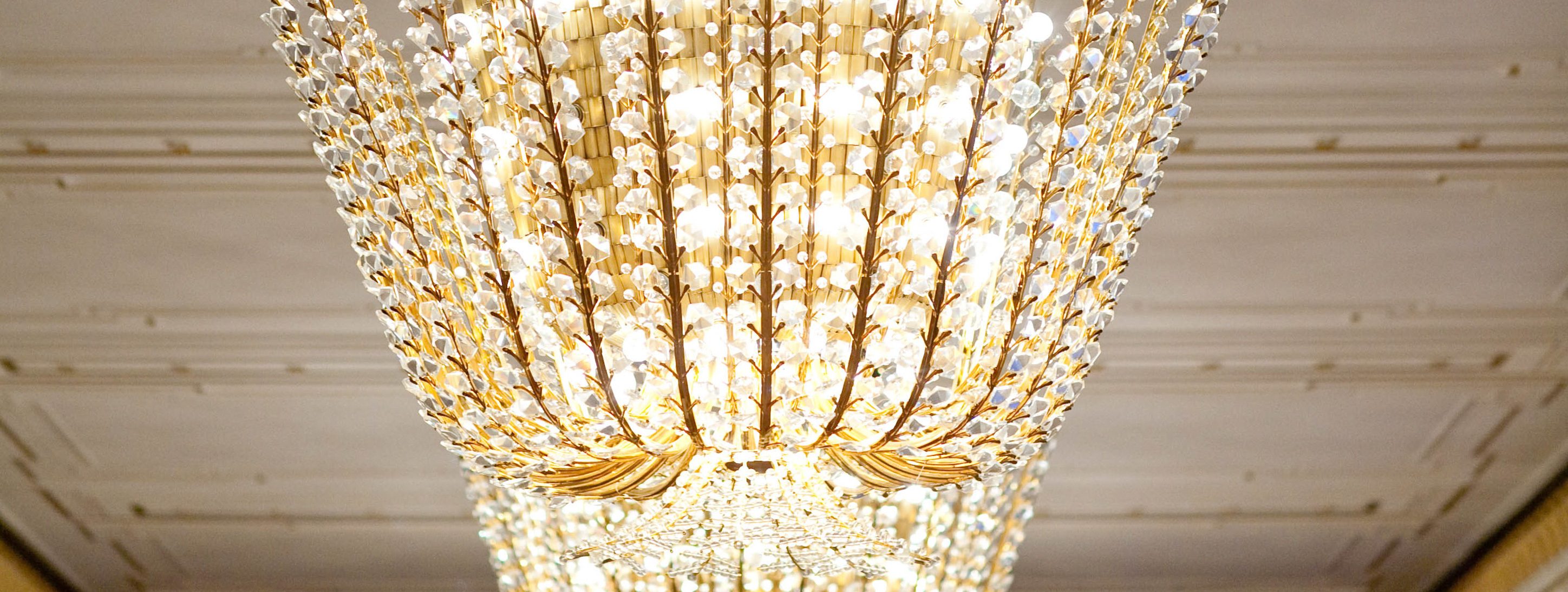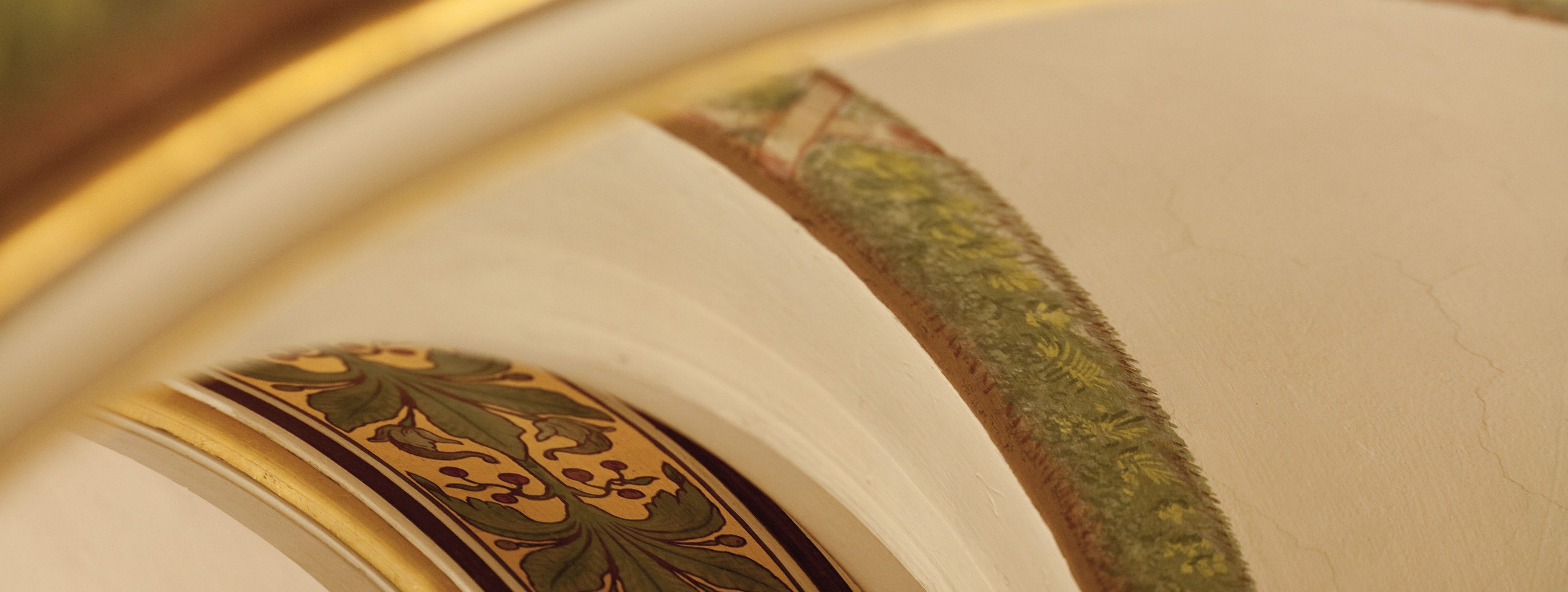
About the production
Three, seven and ace
with these three supposedly infallible cards, revealed to him by the ghost of the dead countess in a feverish vision, the outsider Hermann wants to win big at cards. At this point, however, he no longer wants the money to marry his former lover Lisa, but is hopelessly addicted to gambling. Based on a story by Puškin, /Pique Dame/ deals with a destructive loneliness resulting from social exclusion, to which the Countess, Lisa and Hermann himself fall victim.
Pique Dame
Storyline
A spring day in St. Petersburg. Nannies and governesses supervise the children entrusted to them. The outsider Hermann confesses to Tomski his desperate love for a stranger whom he only idolizes from afar.
Tomski tries to encourage Hermann, but is ridiculed by Chekalinsky and Surin. When Prince Yeletsky appears and introduces his fiancée Lisa, Hermann recognizes his beloved stranger in her. Lisa's grandmother, the old countess and so-called "Queen of Spades", appears at her side. She is both fascinated and repelled by Hermann's appearance - just as he is by hers.

Tomski tells the story behind the old countess's nickname: as a young woman, she caused a sensation in Paris as the "Muscovite Venus". After she had gambled away her entire fortune, the Count of Saint Germain sold her the secret of three infallible cards for the price of a night of love. The countess regained her fortune.

She only confided the secret to her husband and one lover. A ghost has prophesied that a third lover, to whom she will reveal the three cards, will cause her death.
The penniless Hermann, who watches the game of chance with fascination all night long but does not take part himself, is teased by Tschekalinski and Surin: As the old countess's lover, he could afford to take part in the game.

Lisa says goodbye to her friends before the wedding. Polina sings a melancholy romance, then they dance until Lisa's governess forbids these pleasures.
When Lisa is alone, her repressed feelings for Hermann catch up with her. Suddenly he himself stands before her and threatens to commit suicide out of unrequited love. The old countess appears and Hermann has to go into hiding. When Lisa and Hermann are alone again, she confesses her love for him.

The play The Sincerity of the Shepherdess is performed as part of Lisa's engagement celebrations with Prince Yeletsky.
Unlike the shepherdess shown, Lisa has not chosen her love for a have-not, but a life of wealth.
Hermann's comrades frighten, unsettle and mock him with continued allusions to the old countess.

Lisa manages to elude Prince Yeletsky and slips Hermann a key which leads him through the countess's bedroom to her room. He announces his visit for the same night.
Hermann's imagination falls more and more under the spell of the "Muscovite Venus". He surprises and harasses the old countess, in whose mind memories of her glory days at the French court mingle with the presence of Hermann, who is passionately courting her secret. She dies in Hermann's arms without having revealed the secret. Lisa, who rushes over, realizes that Hermann was less interested in her than in the secret of the three cards.
Hermann, whose hopes have been dashed by the death of the countess, is haunted by feverish fantasies.
At its peak, the ghost of the old countess appears, tells him to marry Lisa and teaches him the three infallible cards three, seven and ace.
Lisa has given Hermann an ultimatum: If he does not come to her by midnight, she will consider him her grandmother's murderer.

Hermann appears shortly after midnight to take her to the gambling parlor. She recognizes his obsession and takes her own life.
Hermann surprises the players with his desire to take part. He bets an exorbitant sum and wins with the three, only to double his winnings with the seven in the next round. No one wants to compete against him. Then Prince Yeletsky appears, who has come to take revenge on Hermann for Lisa's loss. Hermann loses because he bets on the queen pique instead of the ace.
Director Vera Nemirova shifts the action to the period just after the fall of communism in the 1990s. In her production, she wanted to show a social background in which, on the one hand, there is immense wealth behind baroque facades in Russia and, on the other, the misery of the poor sections of the population: Casinos next to soup kitchens, homeless people and street children next to the nouveau riche. The protagonists are embedded in these contrasts, which can turn anyone into a criminal - just like the main character Hermann.
The premiere on 19 December 1890 at the Marinsky Theatre in St. Petersburg was a resounding success, the scenic design was of the greatest splendor for the theater of the time and the opera's intermezzo was choreographed by none other than Marius Petipa. The Tsar was present at the dress rehearsal and the composer was presented with a silver wreath during the interval of the first performance and a laurel lyre at the end.










